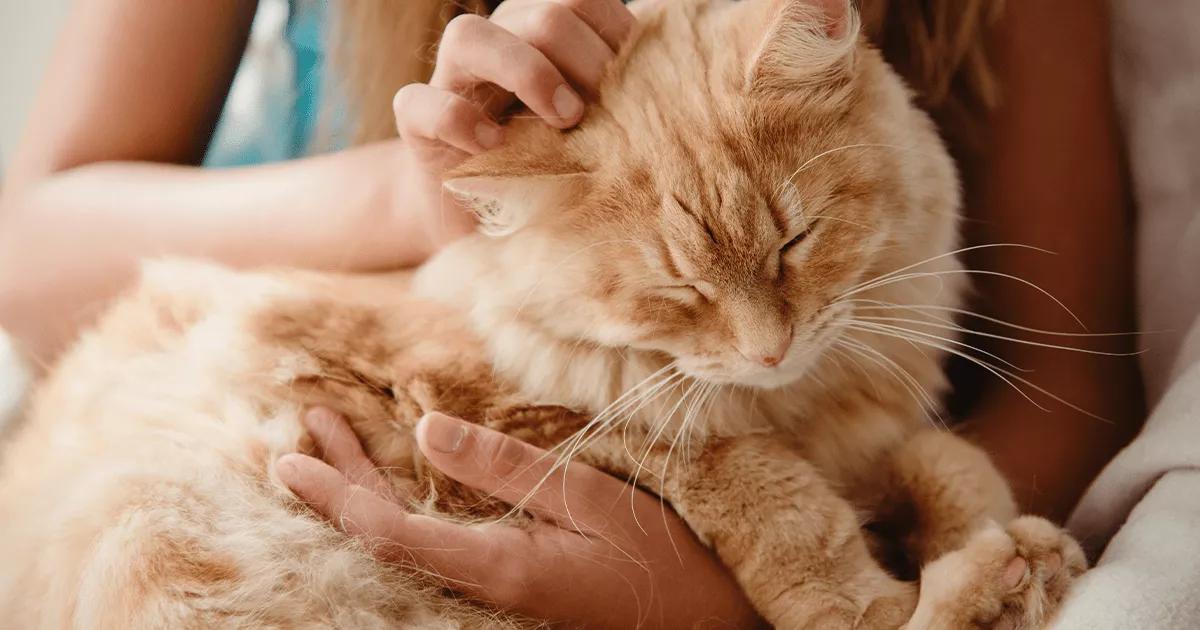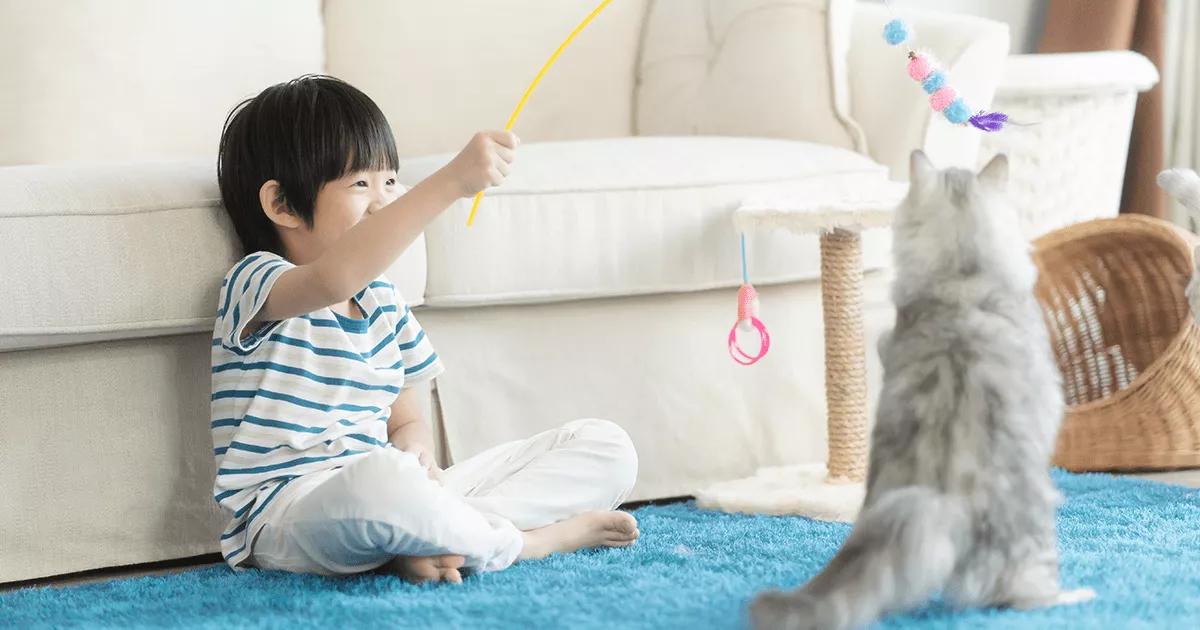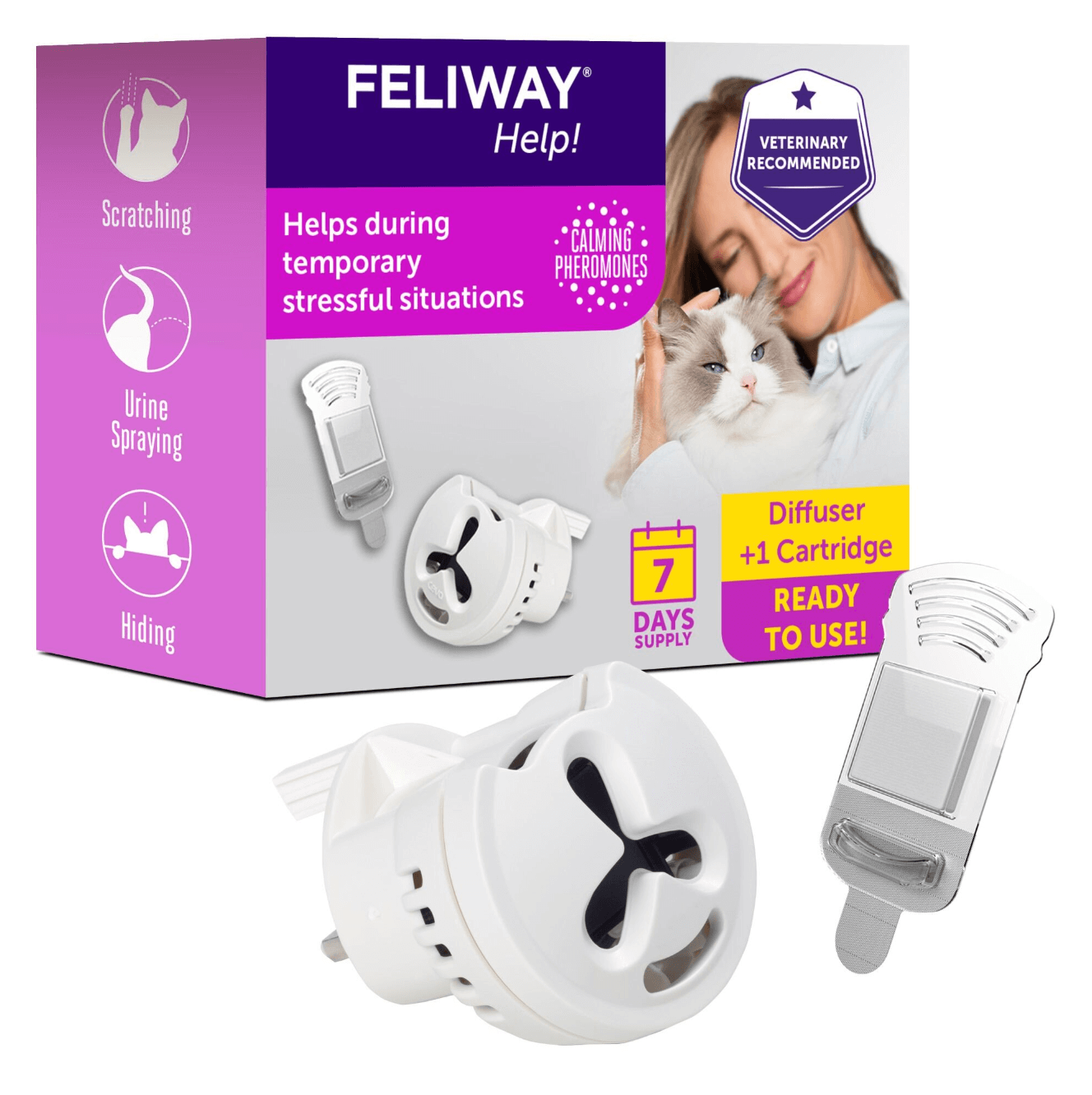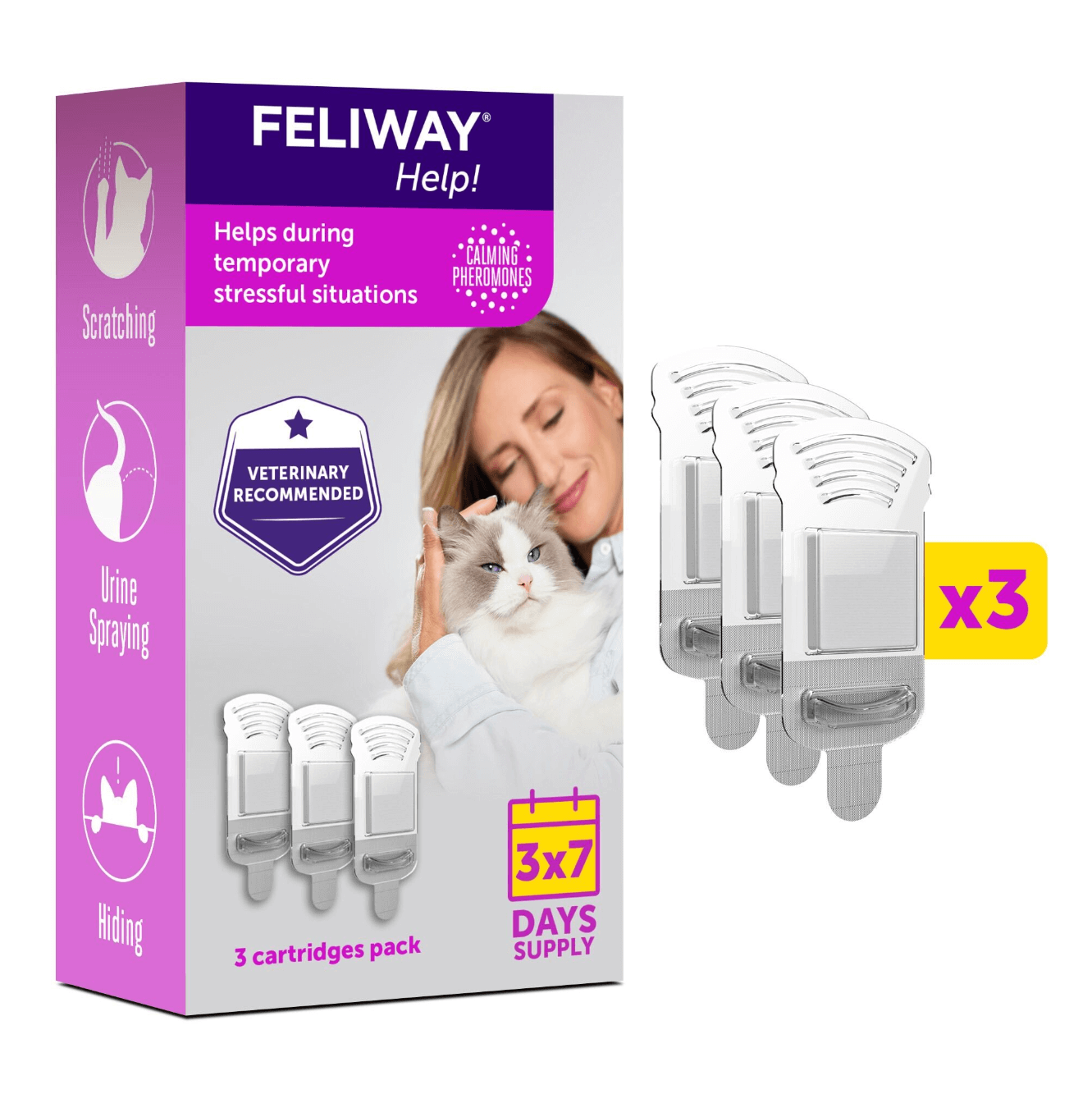
24 Tips to Help Outdoor Cats Adjust to More Time Indoors
Winter time brings colder weather and darker evenings – and the opportunity to cosy up indoors to keep warm. But, what about your cat? Helping your cat enjoy spending more time indoors during the cold, dark months has its benefits – your cat will be warm, and safe from predators, cars and other traffic, or getting lost!
But we know that cats don’t like change, so how can you help outdoor cats adjust to more time indoors?
Make adjustments gradually
Cats can live healthy, happy lives indoors – but we need to think about their environment and ways to keep them physically and mentally stimulated.
1. Don’t suddenly remove their access to the outdoors, but make sure your home is even more cat-friendly and comfortable to entice them to stay indoors.
2. Check to see how they are reacting – are they attempting to get outdoors any chance they have, or are they scratching objects or urine spraying, or are they hiding?
3. Develop an ‘indoor routine’ that they can adjust to easily; this should include morning wake-up time and evening bedtime, and everything in between, like meals, playtime, grooming etc.

Make their environment enticing
4. Ensure there are plenty of warm comfy spots where they can curl up for a cat nap.
5. An additional litter tray with their preferred substrate would be useful – but remember to clean them regularly to avoid your cat peeing outside the litter box.
6. Provide plenty of climbing places – high shelves, cupboards, or even build a cat creche for them.
7. Make sure they have a scratching post to help them stretch when they wake up and to keep their claws in tip-top condition.
8. Grow some cat grass as a cat-friendly plant they can investigate and chew on should they want to. There are plenty of indoor plants you can have that your cat can explore and hide behind safely – but avoid plants like cheese plants/Monstera, aloe vera and cycads, and in seasonal times, watch for plants like mistletoe and poinsettia, as these can be dangerous for cats if ingested. If you think your cat has consumed a plant they shouldn’t have, contact your vet immediately.
9. Always be aware of potential hazards, like open fires, candles or wood burning stoves, and take steps to make these cat-safe.
Help your cat adapt
10. Consider outside viewing opportunities– this is very individual for a cat. It may be frustrating for some cats, whereas others may find it interesting. If you think your cat is getting frustrated by looking through the window, try adding some opaque ‘privacy’ film at cat height, or close the curtains so they can’t see outside.
11. Use FELIWAY Optimum to create a reassuring environment! Plug it into the room where your cat spends most of their time and this will help them feel calm and serene.
12. Don’t punish your cat if they try to go outside – this will add to their concern about being indoors and be counter-productive. You want to make the indoors a safe and interesting place to be.
13. Always keep your kitty’s microchip up to date, just in case they manage to get outside.
14. Help them to eat well by keeping an eye on their diet – for example, use some of their daily food allowance as a ‘treat’. They may well be expending less energy indoors, so it’s important they keep them fit and burn off any extra calories.

Keep your kitty entertained
15. Make sure there are plenty of opportunities for play, so your cat can indulge the hunting drive that they find stimulating in the outdoors – like chasing insects, leaves or feathers, or even prey.
16. Spend extra time playing games that will emulate their outdoor activities, including stalking, chasing, and pouncing. Remember to rotate the toys or games so that your cat doesn’t get bored, and don’t forget to make sure they have the thrill of the ‘catch’ when playing chase.
17. Sometimes your cat may just want a quick rub under the chin, or perhaps they will look forward to your time together on the sofa – discover their preferences to make them feel safe and comfortable.
18. Get creative and try your hand at some DIY activities, like building a cat creche, a cat hammock or a cardboard scratcher!
19. Training time is another great opportunity to spend time together and to provide mental stimulation for your cat. Keep the sessions short and only conduct them at a time when your cat is relaxed. Always finish on a positive note and use tasty treats during training sessions. Training your cat can include
- Coming to you when they are called – this will make it easier to get them to come indoors when night falls.
- Getting them used to spending time in their cat carrier – useful for trips to the vet.
- Helping them to groom – you may have to clip their nails to keep them under control until they can go back outdoors.
What to do if your cat won’t stay indoors

20. Train them to come indoors when you call them. Sometimes shaking their treat jar will be enough to entice them in!
21. If your cat doesn’t cope well with their access outdoors being restricted, make sure there is somewhere sheltered outside where they can curl up to keep warm and dry and away from the elements, like a garage or shed – but always check in there for your cat before you lock up at night.
22. Check your car before starting the engine in case a cat has chosen near the engine or a wheel arch for shelter/warmth.
23. Compromise! If your cat likes to go outside, consider building a screen or a catio on your balcony or patio so that they can still get the taste of being outside, but have instant access to indoors, too.
24. Alternatively, you can try taking them for a walk with a harness or a leash, so that they still get their outside time.






































